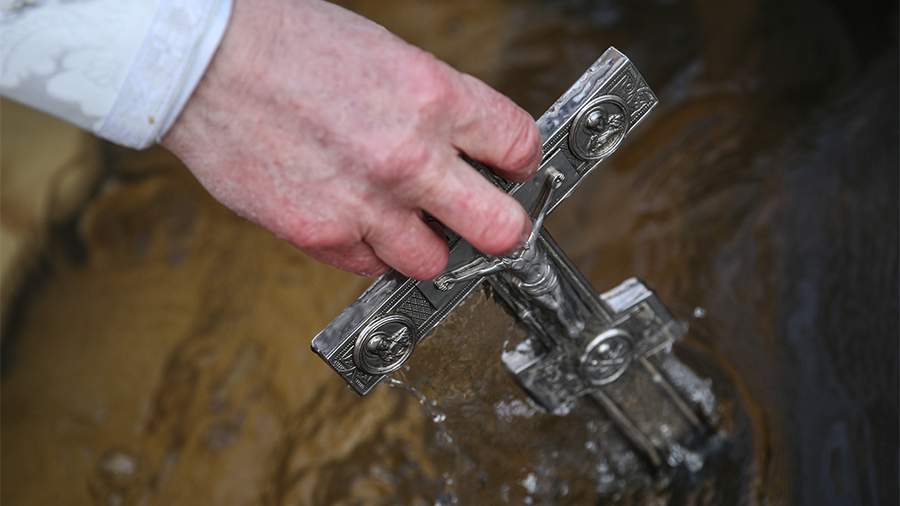January 18 - Epiphany Eve: history and traditions of the Orthodox holiday
Every year on January 18, the Orthodox Church celebrates Epiphany Eve, or the Eve of Epiphany, a special day on the eve of the Epiphany of the Lord. In 2025 it falls on Saturday. About why on this day believers do not take food until the evening and how the celebration took place in Russia, read in the material "Izvestia".
Epiphany Eve: the history of the holiday on January 18
Epiphany Eve - one of the oldest one-day fasts of the Orthodox Church, which appeared in the beginning of the III century. It took place on the eve of Epiphany, which at that time combined the celebration of Christmas and the Epiphany of the Lord. Such a fast was analogous to the pre-Easter fast, which in the ancient Church was kept for two days.
In the V century Christmas and Epiphany received the status of independent celebrations, but the tradition to observe a strict fast on the eve of the holidays was preserved. On these days believers do not eat food until the end of the solemn liturgy. After that, it is allowed to eat a little bit of sotsiv - a dish made of wheat, barley or rice with the addition of honey, dried fruits and nuts. The word "Christmas Eve" is derived from its name.
Divine service and fasting on Epiphany Eve on January 18
Fasting on Epiphany Eve has a special meaning for believers. It is not just abstinence from food, but an important stage of purification of body and spirit before the big church celebration. It helps to distract from the mundane and turn an inner gaze on one's deeds and thoughts.
Many people have heard that on Epiphany and Christmas Eve it is supposed to fast until the "first star". Because of this, it is a common belief that one should not eat until dark. However, in fact, the "first star" is a candle, which is brought to the center of the church during the evening liturgy.
Traditionally, on Epiphany Eve churches serve the Great Hours, Vespers with the reading of the Paremi (passages from Holy Scripture) and the Liturgy of St. Basil the Great. However, if the feast falls on Saturday or Sunday, the Great Hours are celebrated in advance on Friday, and the liturgy is canceled.
After the liturgy (on weekends after Vespers) the Great Consecration of Water is celebrated. It is called Great because of the special solemnity of the rite, because it is held in memory of Jesus entering the Jordan River and receiving Baptism, at the same time sanctifying the water nature. Therefore, it is believed that on the festive night all water becomes holy.
Since the IV-V centuries the Jerusalem Church began to conduct water blessing not only on Christmas Eve, but also directly on the day of Epiphany. In the XI-XII centuries this tradition was also fixed in the statutes of the Russian Orthodox Church. On both days the rite is conducted according to the same order, so the water sanctified on Christmas Eve and Epiphany is no different.
Epiphany Eve-2025: traditions of the holiday
Special attention on the eve of Epiphany is paid to holy water. Believers call it agiasma or simply baptismal water. They treat it with special reverence and try to preserve it throughout the year. At the same time, the clergy note that the baptismal water can pass on its gracious properties. Therefore, if there is a lack of it, it is allowed to dilute it with ordinary water.
There is a tradition to drink a small amount of such water on an empty stomach with a piece of prosphora (unleavened bread, used during communion). If, for any reason, the agiasma becomes unsuitable for drinking, it should be poured out in a secluded place where no one will walk or used for watering plants.
One of the popular traditions of Epiphany Eve and Epiphany is bathing in an ice-hole. People begin to dip in the icy water as early as January 18, after the end of church services. It is believed that this ritual helps to "wash away" sins and purify oneself from negativity. However, clergymen note that bathing is not an obligatory part of the celebration, but a folk custom that should not replace prayer, confession and repentance.
Folk traditions of Epiphany Eve
In Russia, Epiphany Eve was considered the last day of Christmas Eve - a special period between Christmas and Epiphany, which was associated with the rampant evil power and witchcraft. Despite the strict fast, villagers actively participated in fortune-telling and other rituals during the holiday. Unmarried girls hoped to see the image of their soulmate in the mirror or to know the date of their wedding. Family people guessed at the harvest and other economic affairs.
On Epiphany Eve they went caroling for the last time. Young men and women in fancy costumes and masks went around the yards singing carols - special ritual songs. In each house they were given treats or money in exchange for good wishes. To refuse carolers was considered a bad omen: according to the beliefs, an unhospitable host could soon face poverty and disease.
In some regions it was customary to draw crosses on doors and windows on Christmas Eve. People believed that this would help protect the house from demons, evil spirits and other unclean forces.
Earlier "Izvestia" told about the history and tradition of celebrating the Circumcision of the Lord.
Переведено сервисом «Яндекс Переводчик»



